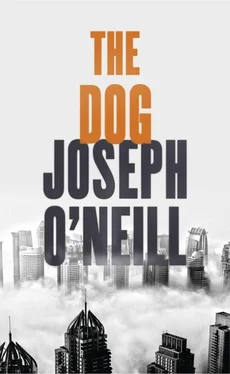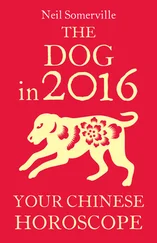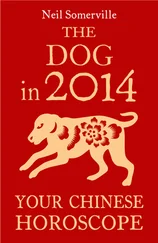I remember all too well how it began.
This was during the awful period when Jenn and I were co-workers but no longer involved. My office interactions were getting stranger. Colleagues had started to act with the weirdly chirpy and compliant standoffishness that is usually reserved for crazy neighbours, bores, people with halitosis, etc. When I engaged them in conversation, they’d say, ‘Got it,’ or ‘Absolutely,’ or ‘You bet, X.,’ and then they’d be out of there.
(Almost immediately after its aggressive introduction by Human Resources, my first initial became my office handle: everybody called me ‘X.’, even clients. (Even Jenn, even after I told her I didn’t like it. ‘Please,’ I eventually insisted, ‘can you not call me that?’ ‘It’s alluring,’ she said. ‘It makes you kind of mysterious. How many other X.s do you know?’ ‘I don’t like it,’ I said. ‘It’s not my name. It’s not me.’ (To her credit, she did as I asked. But she was right: that goddamned X. made my name unique and that much easier to drag through the mud. If I state that John Smith is a coward, no John Smith will lose sleep. John Smiths have safety in numbers, like the gnus of the savannah. If I state that Q. John Smith is a coward, a gnu is separated from the herd. The predators are in business.)))
I was in my Lincoln Tunnel luxury rental, drinking and Googling my evenings away, when I decided, maybe guided by some sixth sense, to search an unusual person — me; that is, I Googled the professional name that was, as I say, thanks to the accursed X., distinctively mine. As I typed, the Autocomplete function spontaneously offered search suggestions. The following appeared in the search box next to my name:
attorney
sexual harassment
embezzlement
tiny cock
Naturally, I was horrified. Anyone who Googled me — as clients and professional colleagues did, all the time — would see this list. They would think less of me. It would make no difference if they followed the search suggestions and duly discovered that there was no actual web content connecting me to sexual harassment, or embezzlement, or a tiny cock, and/or if they understood that these Autocomplete suggestions were not the results of multiple arm’s-length searches by disinterested parties but had been generated by a malicious person or persons Googling me again and again and again in conjunction with the words suggested by Autocomplete in order to create the defamatory and false impression that I was somehow infamously involved in scandals of money-related dishonesty and inappropriate workplace behaviour towards subordinates, and on top of it all was notorious for being meagrely endowed. Even if the Googler understood all of this — understood that I was the victim of a fiendish new form of defamatory publishing that one might term ‘search libel’ — I would still be lowered in his/her estimation for the simple, unfair reason that whoever is (whether rightly or wrongly or inaccurately or correctly) publicly ridiculed or embarrassed automatically suffers a loss of reputation and respect. Nor would it change anything if I were to make some sort of public announcement making clear that I was not, and had never been, implicated in any kind of financial or sexual wrongdoing. That would only aggravate the publicity. A fortiori if I were to post online a photograph that would quash beyond peradventure the nonsense about my not being well hung.
There was nothing to be done. I consulted, in the strictest confidence and professional privilege, an attorney who specialized in verbal torts. She expressed the opinion that this was a very interesting case. She advised that the absence of any express statement, whether defamatory or otherwise, made problematic even a defamation claim based on innuendo, since an innuendo was an unstated secondary meaning contingent on the existence of a stated primary meaning. She pointed out that the text originated algorithmically from a computer program, Autocomplete, rendering complex even the basic issue of authorship. She stated that, as a practical matter, there was no reliable way to identify the responsible spiteful human searcher or searchers. She told me, as if in admiration, that whoever had done this was possessed of low legalistic cunning.
‘Do you know who it is?’ she asked.
I said, ‘I have no idea.’
The lawyer looked curious. ‘Really? We could always send her a cease-and-desist.’
I felt that conclusions were being jumped to about the gender of the person injuring me. I couldn’t say for sure that it was Jenn or some other female in the office or elsewhere. And the world was filled with male malice. Without making any claim to moral rarity, I wasn’t about to go down the road of unfairness. ‘I’m sorry,’ I said. ‘I wish I could tell you, but I can’t.’
‘In that case, I’d try not to worry about it,’ the specialist in speech wrongs said. ‘It’ll go away. Enmity is a lot of work. People get tired. They move on.’
I was alarmed by how she’d put it: enmity. The Earth contained a person, or persons, with the will to cause me harm. It was hard to grasp. I could understand hatred and rage and pain. I could understand ruthlessness — one person falling under the wheels of another’s advance — and I could understand tsunamis and bolts of lightning. What I couldn’t understand was acting with a calculated and methodical intent to damage a fellow human for the sake of making that human suffer damage. I still cannot understand it.
In one respect, my adviser was wrong. My enemy did not tire or move on. The search libel did not go away. When Sandro Batros flew into town to talk to me about Donald Trump, I received him as a saviour.
And now I’m meeting Eddie to save me from Sandro.
We’re having dinner at Per Se. The maître d’ leads me to the best table, by the famous big window, with views of sparkling traffic and the wonderful night-time blackness of Central Park. Eddie is waiting for me, and embraces me. I’m still rattled by the subway altercation and pretty rattled generally, so it feels unusually good to get a big hug out of someone who knows me from way back and, now that I think of it, in Dublin once had lunch with my parents, at the Stag’s Head. He may be the only person I’m still in touch with who knew me when I was not yet orphaned. This fills me with emotion.
‘Let’s get a drink in you,’ he says.
And we drink, and we eat, and we talk about student days. Over Irish coffees, I say, ‘Maeve MacMahon — remember her?’
‘Maeve MacMahon,’ Eddie says. He shakes his head, amazed. ‘Maeve MacMahon.’ The words make a dark, beautiful sorrow. Eddie says, ‘Where is she now, I wonder? Maeve MacMahon.’
Where, indeed? Where has everyone gone? Where is everybody?
It’s time, I feel, to get to the point. ‘Eddie, about Sandro —’
He stops me with a signal of the hand. ‘ Ne parlons pas de cette bêtise, mon vieux, ’ he states. ‘Forget it. It never happened. There’s something else we need to talk about.’
He asks me if I’ve recently heard from the authorities in Dubai. I’m about to say no, when I remember (because I’m bureaucratically competent) the Joint Notice from the Dubai Financial Services Authority and the International Humanitarian City Authority. I was supposed to meet these jokers the day after tomorrow, Tuesday. I mention this to Eddie, and he says, ‘Yes, that’s what I’m talking about. Now, listen carefully.’
I listen carefully, and I really don’t like what I’m hearing.
In executive summary: the Dubai authorities are about to formally launch an investigation into possible malfeasance by the Batros Foundation. It is suspected that certain charitable activities of the Foundation — specifically, the provision and operation of health clinics for the African poor — have been used as a vehicle for laundering monies (‘Many millions of dollars,’ Eddie says, when I press him) debited without authority (i.e., stolen) from Libyan banks and transferred, via a series of offshore intermediaries, to the Foundation in Dubai, which has accepted these monies as donations. (‘I don’t know the details,’ Eddie claims. ‘I’ve got nothing to do with Africa. But what I’d like to know is, how are our people in Dubai supposed to know if a donation is legit or not?’) Apparently there are further questions about the redistribution of these donations to African sub-charities, i.e., whether the money in question was devoted to the Foundation’s charitable purposes or whether, in fact, it made its way back to the thieves/donors/money launderers. ‘It’s all very probably a big nothing,’ Eddie says, ‘but that’s not the point. Apparently the Libyans are pretty steamed up about their missing cash, and Dubai feels it has to do something. This needs careful handling.’
Читать дальше
Конец ознакомительного отрывка
Купить книгу












